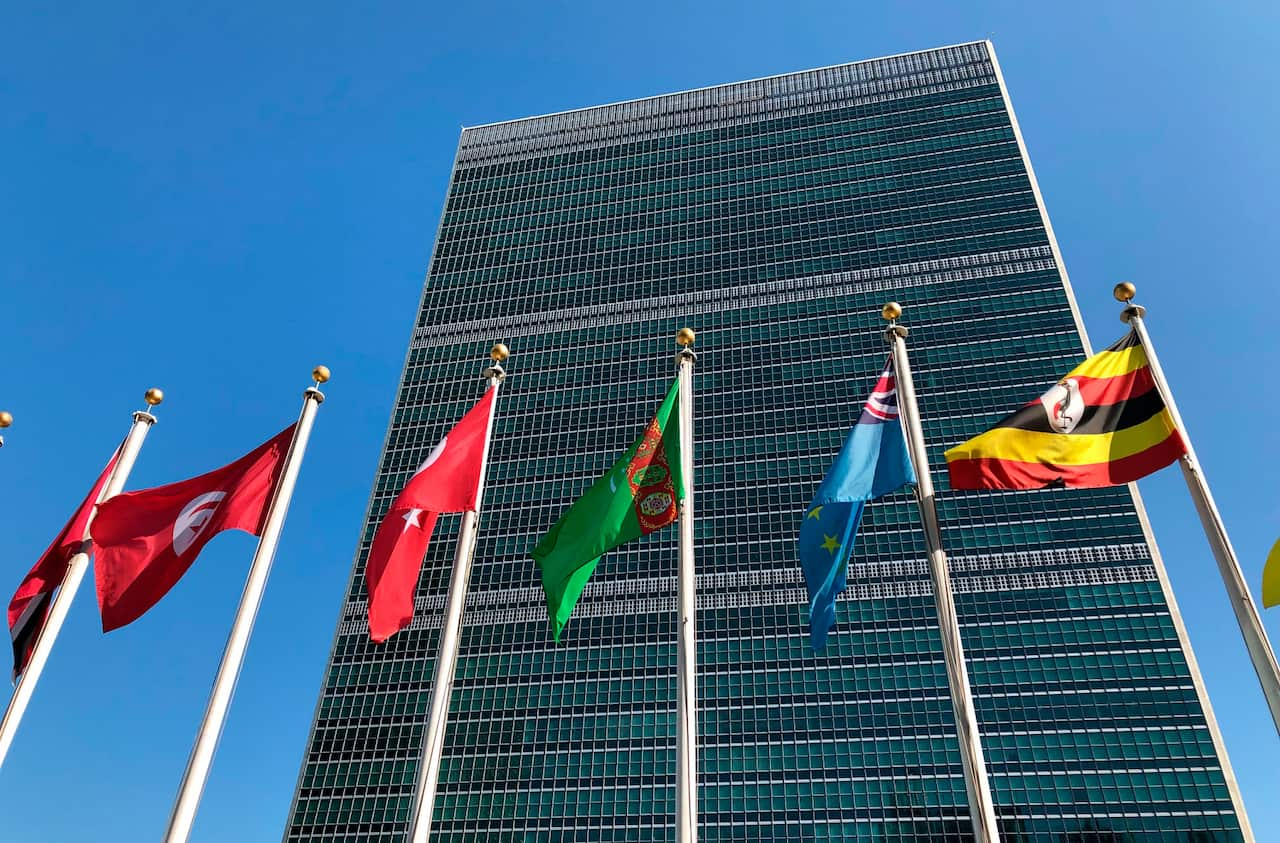The United Nations is facing a "severe financial crisis", placing vulnerable communities around the world at risk of missing out on vital aid and stability.
The UN is also facing the prospect of not being able to pay some of its 44,000 staff next month.
At the end of September, only 129 member states out of 193 had paid their dues to the bloc's regular budget - 70 per cent of what the UN needs to run its core operations.
While some countries have since payed their dues, UN Secretary-General Antonio Guterres said the regular budget remains on track to reach its “deepest deficit of the decade”. “The organisation is facing a severe financial crisis. To be more specific, a severe liquidity crisis,” he said.
“The organisation is facing a severe financial crisis. To be more specific, a severe liquidity crisis,” he said.

UN Secretary-General Antonio Guterres says the United Nations is facing its worst cash crisis Source: AAP
"Our work and our reforms are at risk."
The UN’s regular budget covers political, humanitarian, disarmament and economic work. It is separate to the peacekeeping budget.
Binoy Kampmark, a Senior Lecturer at RMIT University's School of Global, Urban and Social Studies, said some of the most vulnerable people in the world stand to lose the most.
"In parts of Syria, and in various war zones through the Middle East and Africa, we see UN personnel being deployed in various ways,” he said.
“Effectively, any of one of instances where we're dealing with supplying stabilising mechanisms, are affected by not having a budget to satisfy them."
How is the UN funded?
All UN members are required to make annual payments to help fund the bloc's regular budget.
The amount each member pays is determined by a complex formula factoring in gross national income and population.
The UN said cash shortages are increasingly occurring earlier in the year, forcing it to dip into other accounts and funds. The regular budget is no longer being driven by program planning, but by finance availability, Mr Guterres said.
The regular budget is no longer being driven by program planning, but by finance availability, Mr Guterres said.

United Nations Secretary-General Antonio Guterres speaks during a press conference. Source: EPA
“Managers have been instructed to adjust their hiring and non-post expenditures owing to liquidity constraints,” he said.
“This undermines mandate delivery and goes against our efforts to focus less on inputs and more on results."
But the United States, responsible for 22 per cent of the budget, has not.
It owes more than the 63 other countries which haven’t paid - which include Brazil, Iran, Israel and Sri Lanka - combined.
The US owes some $566 million for prior regular budgets and $1 billion for the 2019 regular budget.
The top contributing nations to the 2019 regular UN budget are China ($497.3 million), Japan ($354.8 million), Germany ($252.3 million), Britain ($189.2 million) and France ($183,.4 million).
Ongoing struggles?
The UN has made various cost-cutting measures since the start of the year to cope with shortfalls: vacant posts can't be filled, only essential travel is allowed and some conferences have been cancelled.
Such changes were the only way it could stage the General Assembly debate and high-level meetings last month, the bloc said.
"To date, the UN has averted major disruption in its operations … but these measures are no longer enough,” spokesman Stephane Dujarric said.
But budgetary issues are likely to plague the bloc until wider reforms are made, Dr Kampmark said.
Australia, he said, can be a leading voice.
“The fact we're talking about 193 states, many with different financial arrangements in terms of how they decide their contributions, this makes it difficult.”
“Until that is sorted out, and Australia can be a voice in this, we are going to see a repeat of these problems."

